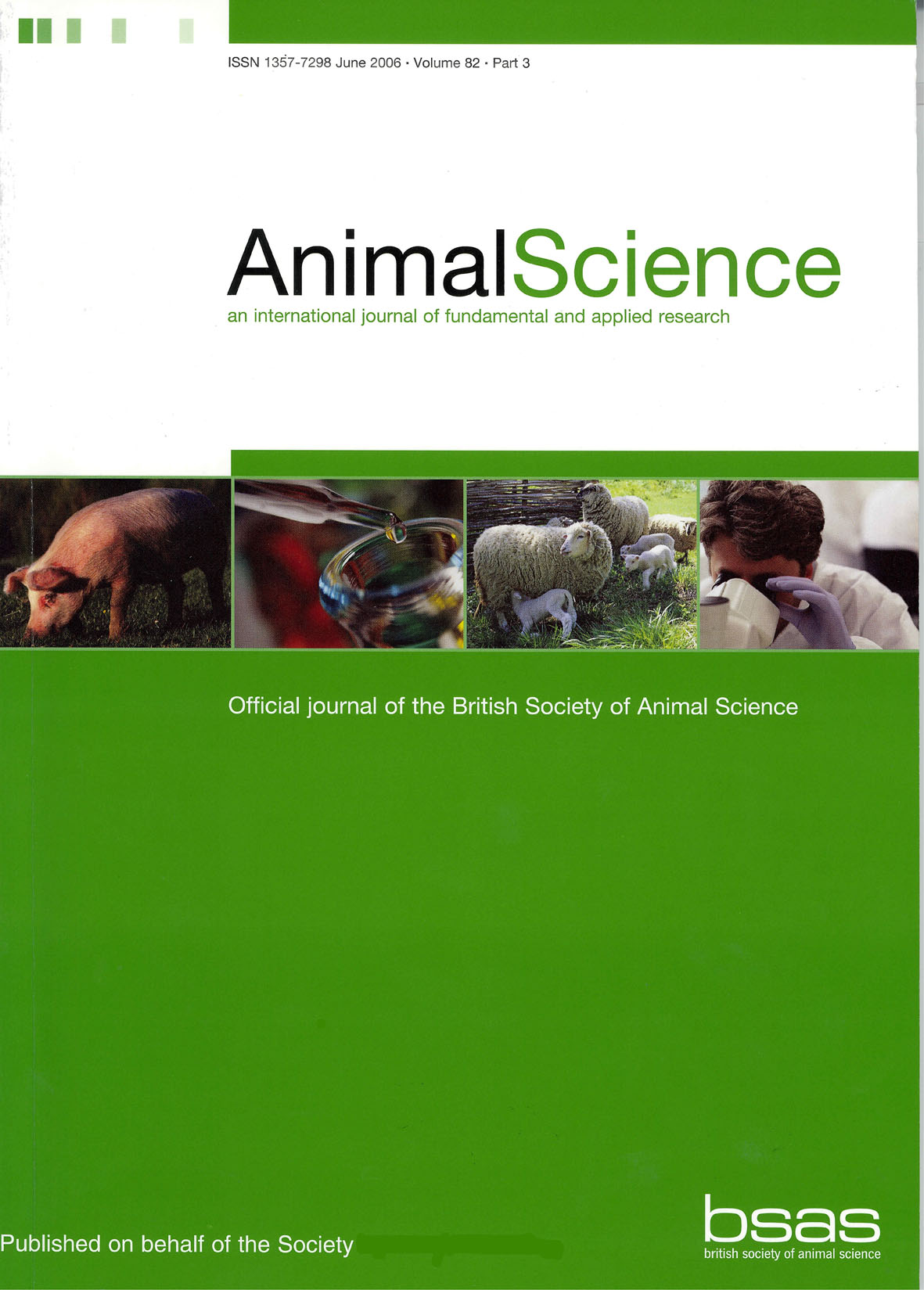Article contents
The effect of the introduction of the Thoka gene for fecundity on lamb production from Cheviot ewes
Published online by Cambridge University Press: 02 September 2010
Abstract
A flock of Cheviot ewes carrying the Thoka gene for fecundity was established in southern Scotland through the importation of frozen semen from two Icelandic rams. Ewes considered to be probable carriers of the Thoka gene were identified on the basis of measurements of ovulation rate as juveniles at 1·5 years of age and again as adults. Analysis of 3 years' records of 8926 Cheviot lambings and lambings of 351 Icelandic × Cheviot ewes considered to be probable carriers showed that fecundity increased with age in both genotypes, the number of lambs born per ewe mated being 1·07, 1·19, 1·31 and 1·41 in the Cheviots and 1·55, 1·74, 2·33 and 2·30 in the Icelandic-Cheviot crosses at first to fourth lambings respectively. The apparent effect of the crossbreeding on fecundity thus also increased with age, values at first to fourth lambings being 0·48, 0·55, 1·02 and 0·89 lambs per ewe mated, giving a weighted mean value of 0·61 (1·20 v. 1·81 lambs per ewe mated in Cheviot and Icelandic × Cheviot ewes respectively). There was a positive effect of the proportion of Icelandic ancestry on the number of lambs born per ewe mated and thus the observed increases in fecundity, although attributed principally to the effects of the Thoka gene, are also due in part to other genetic factors introduced from the Icelandic sheep in the crossbreeding programme. Lamb mortality to 6 weeks of age was only marginally higher in Icelandic × Cheviots (0·10) than in Cheviots (0·08). The increase in fecundity was achieved without an excessive proportion of large litters (<0·02 of probable carriers gave birth to quadruplets). The results demonstrate that the introduction of the Thoka gene to breeds such as the Cheviot can increase fecundity and hence the potential for more efficient lamb production.
Keywords
- Type
- Research Article
- Information
- Copyright
- Copyright © British Society of Animal Science 1997
References
- 4
- Cited by




